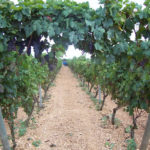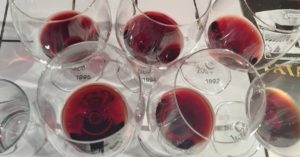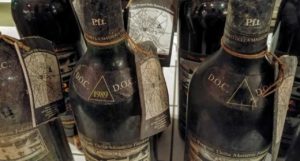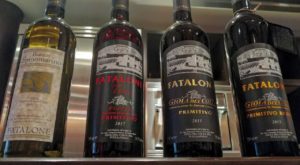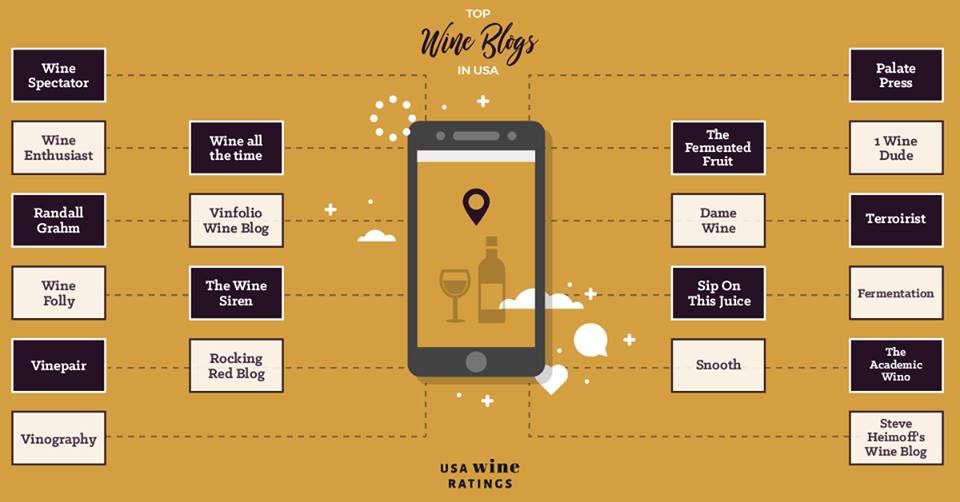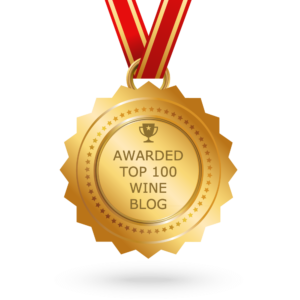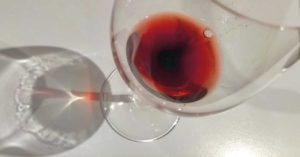 I am a strong believer in the idea that life does not work around us, we need to work around life, in the sense that there are many things we will have to take on that will be drudge work, so to speak, for us to survive and to be contributing members of society. Not only will the grind be a part of our daily lives but there are people that will come in and out of our personal and professional lives that will challenge us, maybe even trod on our souls a little bit. There is no way to completely avoid any of these unpleasantries but there are choices that we can make to help shape the soundtrack of our lives, but often times, these choices come at a price.
I am a strong believer in the idea that life does not work around us, we need to work around life, in the sense that there are many things we will have to take on that will be drudge work, so to speak, for us to survive and to be contributing members of society. Not only will the grind be a part of our daily lives but there are people that will come in and out of our personal and professional lives that will challenge us, maybe even trod on our souls a little bit. There is no way to completely avoid any of these unpleasantries but there are choices that we can make to help shape the soundtrack of our lives, but often times, these choices come at a price.
Fatalone
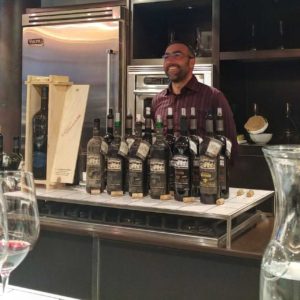 I was invited by a well-respected American journalist, author and famous natural wine advocate, Alice Feiring, to a Puglia Primitivo tasting. At first, I was completely taken aback as Puglia Primitivo wines are viewed, in general, as big, alcoholic, manipulated wines, and Alice only promotes wines that have very little or no intervention and have an overall finesse and sense of place that usually equates to lower alcohol levels. Now I am a wine generalist obsessed with the story aspect of wines so I like big Primitivo wines as long as they are well-done, and I am open to commercial wine practices, as well as natural practices, and everything in between. But I was shocked to see Alice send an invite for Puglia Primitivo and I knew there had to be something special about this producer called Fatalone.
I was invited by a well-respected American journalist, author and famous natural wine advocate, Alice Feiring, to a Puglia Primitivo tasting. At first, I was completely taken aback as Puglia Primitivo wines are viewed, in general, as big, alcoholic, manipulated wines, and Alice only promotes wines that have very little or no intervention and have an overall finesse and sense of place that usually equates to lower alcohol levels. Now I am a wine generalist obsessed with the story aspect of wines so I like big Primitivo wines as long as they are well-done, and I am open to commercial wine practices, as well as natural practices, and everything in between. But I was shocked to see Alice send an invite for Puglia Primitivo and I knew there had to be something special about this producer called Fatalone.
Gioia del Colle DOC
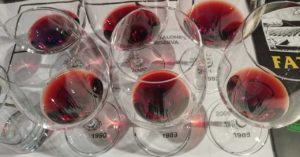 Fatalone (Azienda Agricola Petrera Pasquale) represents 5 generations of winemakers in the Gioia del Colle DOC area of the region in Puglia of Italy – Puglia is the heel of the boot at the southeast corner of the country. Puglia is the Italian home of the red grape variety Primitivo which is related to US Zinfandel and both can be traced back to a Croatian grape variety that found its way to Italy centuries ago. Pasquale Petrera, the family owner and winemaker of Fatalone, said the Primitivo was the father and son of Zinfandel because after the louse Phylloxera devastated many European vineyards, Puglia needed to replant with Primitivo clones that were from the US (aka Zinfandel) that originally came from Puglia.
Fatalone (Azienda Agricola Petrera Pasquale) represents 5 generations of winemakers in the Gioia del Colle DOC area of the region in Puglia of Italy – Puglia is the heel of the boot at the southeast corner of the country. Puglia is the Italian home of the red grape variety Primitivo which is related to US Zinfandel and both can be traced back to a Croatian grape variety that found its way to Italy centuries ago. Pasquale Petrera, the family owner and winemaker of Fatalone, said the Primitivo was the father and son of Zinfandel because after the louse Phylloxera devastated many European vineyards, Puglia needed to replant with Primitivo clones that were from the US (aka Zinfandel) that originally came from Puglia.
But like any set of twins that were raised apart from each other, each evolved differently and so not only is Puglia Primitivo its own thing but the two most famous communes in Puglia (Primitivo di Manduria and Gioia del Colle) can diverge in their styles; generally Gioia del Colle are lighter wines with more finesse… again, I have no personal issue with the richer Manduria style and like to get my Manduria Primitivo on from time to time.
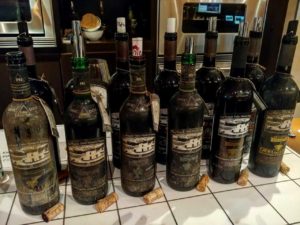 You may be more familiar with Primitivo di Manduria as it has enjoyed success longer as Gioia del Colle didn’t start bottling their own wines until 1987 – Fatalone being the first – and there are only 15 wine producers in the consorzio (a group safeguarding the Gioia del Colle DOC) and only 3 of them make more than 50,000 bottles (yes, I said bottles not cases) which is just over 4,000 cases. Fatalone (the 3rd largest producer) makes 60,000 bottles just around 5,000 cases. Many US wine producers have told me that a winery needs to make 10,000 cases to even become profitable and so this is a DOC of tiny producers and their wines are not going to be widely available on export markets.
You may be more familiar with Primitivo di Manduria as it has enjoyed success longer as Gioia del Colle didn’t start bottling their own wines until 1987 – Fatalone being the first – and there are only 15 wine producers in the consorzio (a group safeguarding the Gioia del Colle DOC) and only 3 of them make more than 50,000 bottles (yes, I said bottles not cases) which is just over 4,000 cases. Fatalone (the 3rd largest producer) makes 60,000 bottles just around 5,000 cases. Many US wine producers have told me that a winery needs to make 10,000 cases to even become profitable and so this is a DOC of tiny producers and their wines are not going to be widely available on export markets.
Gioia del Colle is higher in elevation than Primitivo di Manduria and near the Adriatic Sea; Pasquale said that his vineyards were almost 1312 feet (400 meters) above sea level and 28 miles (45 kilometers) from the sea.
Natural Enough
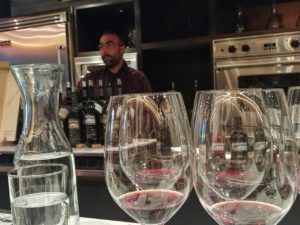 A big part of why Alice Feiring liked this producer, besides the simple fact that their wines were fantastic, was their commitment to natural winemaking. I asked Alice if Fatalone was considered a natural winemaker and she simply said, “They were natural enough.” Temperature control during fermentation in stainless steel and pumping over during their spontaneous fermentation, to avoid stuck ferments, are the only controls that take place by Pasquale, that may not be followed by other hardcore natural winemakers especially if they are in cooler climates… but the warmer temperatures almost make it mandatory that Pasquale takes a couple precautions, at least in my mind. Fatalone vineyards are 100% certified organic (no irrigation – dominant clay soils absorb water), using grapes from only their own vineyards, they have zero CO2 emissions (100% of their energy comes from their solar panels), aging takes place in old Slovenian oak, low SO2 with less than 40 mg/L and they employ “music therapy” during the aging of the wines.
A big part of why Alice Feiring liked this producer, besides the simple fact that their wines were fantastic, was their commitment to natural winemaking. I asked Alice if Fatalone was considered a natural winemaker and she simply said, “They were natural enough.” Temperature control during fermentation in stainless steel and pumping over during their spontaneous fermentation, to avoid stuck ferments, are the only controls that take place by Pasquale, that may not be followed by other hardcore natural winemakers especially if they are in cooler climates… but the warmer temperatures almost make it mandatory that Pasquale takes a couple precautions, at least in my mind. Fatalone vineyards are 100% certified organic (no irrigation – dominant clay soils absorb water), using grapes from only their own vineyards, they have zero CO2 emissions (100% of their energy comes from their solar panels), aging takes place in old Slovenian oak, low SO2 with less than 40 mg/L and they employ “music therapy” during the aging of the wines.
Music Therapy
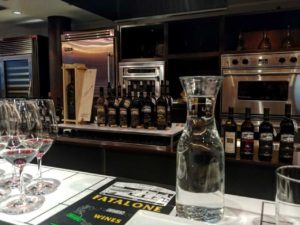 While the wines are aging in oak, Pasquale plays new age music with the sounds of storms, rivers, and such, at a low level, near the barrels, and he says that it seems to help with micro-oxygenation of the wines in oak. Since Pasquale has a strong scientific background (he studied physics) he felt obligated to say that there was no evidence of effects on the micro-organisms living in the wine, and that not only did each vintage react differently but each barrel has varied results, yet he can say that some barrels will show more desired tertiary notes (aromas associated to the wine evolving). He said he needs to keep the volume just right… too loud, it becomes too disruptive to the barrels and if there is no music at all, then there is nothing instigating the development of deeper complexity.
While the wines are aging in oak, Pasquale plays new age music with the sounds of storms, rivers, and such, at a low level, near the barrels, and he says that it seems to help with micro-oxygenation of the wines in oak. Since Pasquale has a strong scientific background (he studied physics) he felt obligated to say that there was no evidence of effects on the micro-organisms living in the wine, and that not only did each vintage react differently but each barrel has varied results, yet he can say that some barrels will show more desired tertiary notes (aromas associated to the wine evolving). He said he needs to keep the volume just right… too loud, it becomes too disruptive to the barrels and if there is no music at all, then there is nothing instigating the development of deeper complexity.
Sincere Choices Leading Us Down an Unsettling Path
There are so many variables and obstacles on every permutation of a path we could take that it is impossible to be completely prepared for what we will face when trying to find fulfillment, success and peace. Like the thin skinned Primitivo that is transparent in telling its vintage story, we cannot help, even against all our efforts, to show our inner lives that are constantly molded and shaped by our own soundtrack that surrounds us on a daily basis… the words that are spoken around us, the acts that touch our lives, the looks, the intentions, the ethics of those around us forming a crystal lattice structure that seep into our very being… this is the music, the vibration that chisels into us our sense of worth, our sense of purpose, our inner contentment that encourages the evolution of what we will become, in time.
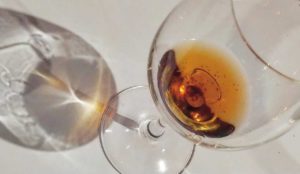 Sometimes we are placed into positions where what we are expected to say, or actions we are expected to perform, that are crimes against our own personal sense of humanity… many times being told that this is what everyone does, and so we feel that again, this is one of those things in the world that we need to work around to become productive members of society. We are faced with the decision to sacrifice outward success for inner peace and the hard reality is that choosing character over a sense of outward prosperity will typically not be rewarded… except for the soulful dance of our inner light that only grows strongly when the right soundtrack, at the right level, surrounds us.
Sometimes we are placed into positions where what we are expected to say, or actions we are expected to perform, that are crimes against our own personal sense of humanity… many times being told that this is what everyone does, and so we feel that again, this is one of those things in the world that we need to work around to become productive members of society. We are faced with the decision to sacrifice outward success for inner peace and the hard reality is that choosing character over a sense of outward prosperity will typically not be rewarded… except for the soulful dance of our inner light that only grows strongly when the right soundtrack, at the right level, surrounds us.
And I think that is the best reason that someone would take the path of a natural winemaker, especially one in a tricky region such as Puglia. It is not easy, it is not hugely profitable, it will most probably not get you fame, and may get you some odd side looks from people, but it is a choice deciding the soundtrack that plays through our lives, one that is not always easy yet allows us to age knowing that the things we sacrificed were fleeting and those we chose represented the music that evolved us into the person we knew we could be.
*****************************************************
Tasting of Fatalone Primitivo Riserva Vertical on November 2nd, 2018
Thank you to Astor Wines in New York City for providing the space for this vertical tasting and seminar. Also, they carry many of the Fatalone wines.
Side Notes:
Primitivo is the only grape variety in the Mediterranean area that supplies a second harvest that they call the Racemi of the Primitivo. Some producers blend the Racemi as it is lighter and more acidic, but Fatalone harvests the Primitivo and Racemi separately (Racemi one month after Primitivo) and only uses the 1st harvest for all their Primivito Riserva and regular Primitivo wines and then uses the Racemi for their ‘Teres’ wine. They like leaving the Racemi on the vines as it helps to arrest the development of the Primitivo, a thin skinned grape that goes from perfectly ripe to over-ripe very quickly, and helps arrest development towards the end of the growing cycle to keep the Primitivo’s ripeness at an ideal level.
Pasquale says that they have been altering their traditional Alberello Pugliese trellising system to raise the grape bunches further up from the ground to keep them from getting over-ripe as average temperatures slightly rise due to climate change.
In regards to the below tasting, all of the Riserva wines had an incredible lightness of being to them while still achieving an intensely vibrant complexity that would tingle down to my toes. So when I refer to some vintages being richer than others, please keep in mind that all of these wines had finesse and that lightness of being quality but of different degrees.
All of the Wines in the 2015 to 1988 Vertical are Fatalone, Primitivo Riserva, Gioia del Colle DOC:
1st set of wines: 2015, 2013, 2011, 2009, 2007, 2006
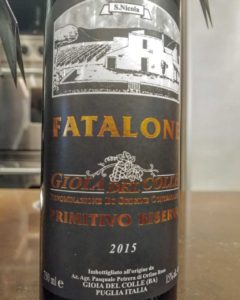 -2015: Warm vintage that was not too hot with right amount of balance. Pretty, vibrant red & black fruit with cinnamon note and a bright finish. Textural wine with elegant structure.
-2015: Warm vintage that was not too hot with right amount of balance. Pretty, vibrant red & black fruit with cinnamon note and a bright finish. Textural wine with elegant structure.
-2012: Dried black currant and bay leaf with zingy cranberry on the finish with hints of smoke.
-2011: This vintage is similar to 2015 yet it is not as concentrated. At first, juicy black berry then black tea, bruised cherry, savory herbs with power on the body.
-2009: A vintage that had less ripeness. Dusty earth dominant on the nose with dark fruit in the background, yet it had good flesh with smoky, dried leaves.
-2007: Perfect ripening. This was a favorite of mine with tight structure and broken earth with dried basil and thyme with lots of spice.
-2006: Slightly more ripe than 2007. Exotic spice of cumin and cardamom that had electric, fun flavors of pomegranate and a long, vibrant finish… couldn’t believe that this was a riper vintage
2nd set of wines: 2005, 2003, 2001, 2000, 1997, 1996
-2005: Lots of rain during this vintage and so lighter color as less phenolic maturity. Marked acidity with dried herbs. Pasquale was quite hard on himself in regards to this bottle and said it is not at the same quality level of the other vintages. Someone else in the room asked if he had tasted this vintage recently and he said he did in March and it was more expressive. So perhaps bottle variation is the issue in this case since it was such a difficult vintage.
-2003: A very hot vintage and Primitivo is very sensitive to climatic changes. Lots of earthy, sweet tobacco and sour cherries on the bright finish.
-2001: This had real old world charm with black cherry skin and a touch of tar with moderate body and gravelly finish.
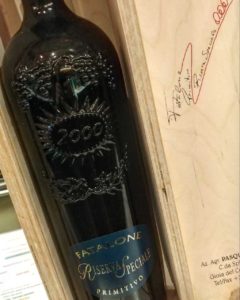 -2000: Smoldering cedar, sweet fruit in mid-palate with a rich body. A great vintage that is celebrated by a limited edition of magnums in hand signed wooden boxes.
-2000: Smoldering cedar, sweet fruit in mid-palate with a rich body. A great vintage that is celebrated by a limited edition of magnums in hand signed wooden boxes.
-1997: Wild boar sausage, fresh rosemary and mulberries with a linear body.
-1996: Plums with a noticeable texture to the body with zingy cranberries on the finish.
3rd set of wines: 1995, 1994, 1992, 1990, 1989, 1988
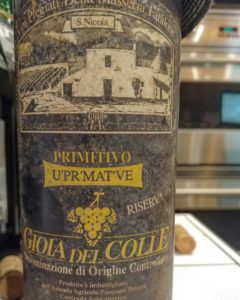 -1995: Wild and stony with hints of brambly fruit along the delicate texture.
-1995: Wild and stony with hints of brambly fruit along the delicate texture.
-1994: Carob powder, wild rose and subtle black berry fruit with silky tannins across the long finish.
-1992: Smoked meats, ripe strawberry and basil with an expressively long length.
The last 3 wines were the last bottles Pasquale had left in his cellar and he decided to share it with us that day in New York City.
-1990: Crumbly rock, granite and a hit of passion fruit in the background.
-1989: Balsamic with stewed cherries that was surprisingly rich and sustained on the finish.
-1988: Fresh black cherry, grilled herbs, smoldering earth with a lift of sour red cherries on the end.
A treat of two wines over 40 years old made by Pasquale father’s father in 1977 (fermented in concrete) and his mother’s father in 1969 (fermented in chestnut) showed how there is a different tradition for winemaking on both sides of the family. Both of these wines were made without any modern controls in the winery.
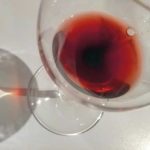 -1977: Copper color with intense walnut and a hint of bruised golden apple.
-1977: Copper color with intense walnut and a hint of bruised golden apple.
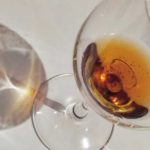 -1969: Ginger, quince with toasted pine nuts… tangy finish.
-1969: Ginger, quince with toasted pine nuts… tangy finish.
Current Releases of Fatalone (some may not have hit the market yet):
-2017 Spinomarino Bianco, Puglia IGT: 100% Greco. Green mango and hints of honeysuckle with intense minerality on the finish.
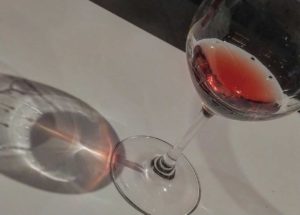 -2017 ‘Teres’ Primitivo, Puglia IGT: 100% Primitivo Racemi (2nd harvest) of the vines. The wine looked like a dark rosé (aka Rosado) that had cherry blossom and sweet spice along the light body. A great new find for a light red wine that is fun and playful. This wine would probably be best served on the cooler side. Right now this wine is available for $13 at Astor Wines.
-2017 ‘Teres’ Primitivo, Puglia IGT: 100% Primitivo Racemi (2nd harvest) of the vines. The wine looked like a dark rosé (aka Rosado) that had cherry blossom and sweet spice along the light body. A great new find for a light red wine that is fun and playful. This wine would probably be best served on the cooler side. Right now this wine is available for $13 at Astor Wines.
-2016 Primitivo, Gioia del Colle DOC: A dark, brooding nose with black berries and plums that had wildflowers start to slowly reveal themselves with a bright, sour cherry finish.
-2015 Primitivo Riserva, Gioia del Colle DOC: This was the first wine in the Riserva vertical. Pretty, vibrant red & black fruit with cinnamon note and a bright finish. Textural wine with elegant structure.

